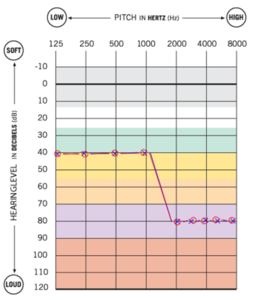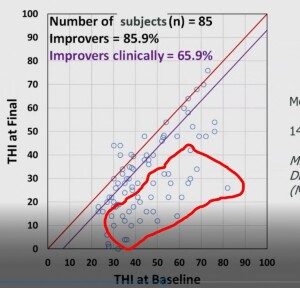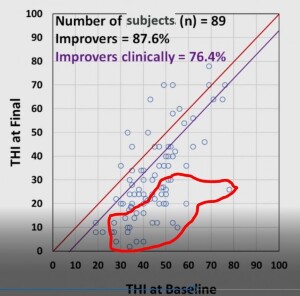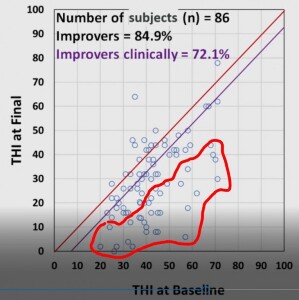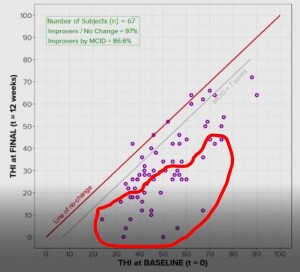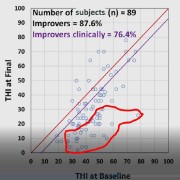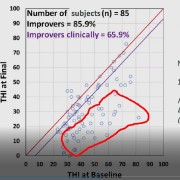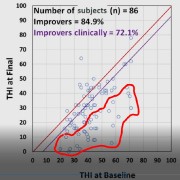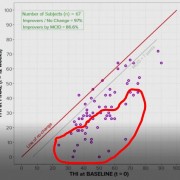This device seems really familiar to the one I've read in a book named The Brain That Changes Itself: Stories of Personal Triumph from the Frontiers of Brain Science.
The first case is about a woman who lost her "balance organ" and was always in a constant vertigo and senses like shes falling, she could not stand, so these scientists had an idea, they connected a gyro with an electrode to her tongue so she'll get a signal about her position directly to her tongue, and it worked! with the device connected she could stand immediately, no vertigo, but the real surprise came as the effects continued when the device got removed (first time effects continued for a half a min, then a min, half an hour, day, until it was pretty much permanent).
But in Lenire's case, the results are not instantaneous as the one in the book, but seems like it's working (or at least attempts to) in that same principle.
The first case is about a woman who lost her "balance organ" and was always in a constant vertigo and senses like shes falling, she could not stand, so these scientists had an idea, they connected a gyro with an electrode to her tongue so she'll get a signal about her position directly to her tongue, and it worked! with the device connected she could stand immediately, no vertigo, but the real surprise came as the effects continued when the device got removed (first time effects continued for a half a min, then a min, half an hour, day, until it was pretty much permanent).
But in Lenire's case, the results are not instantaneous as the one in the book, but seems like it's working (or at least attempts to) in that same principle.

 Member
Member Founder
Founder